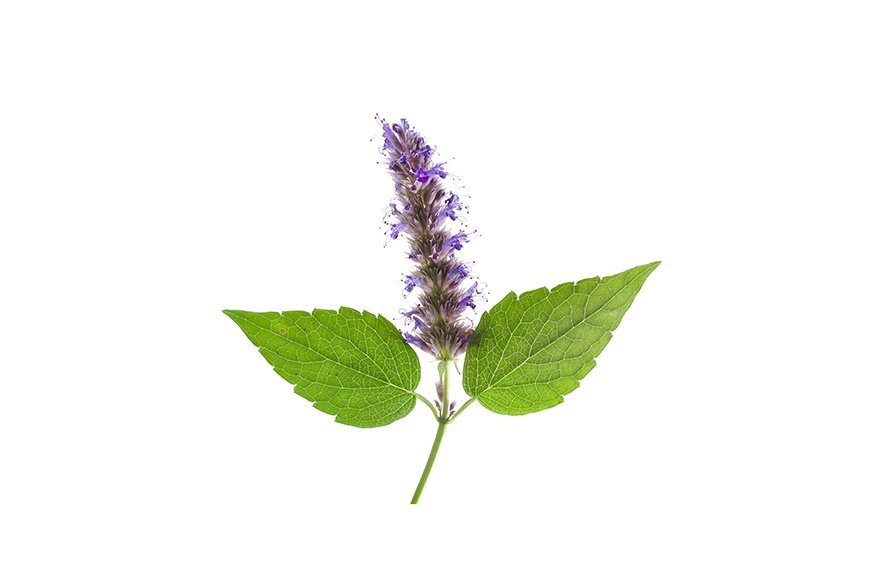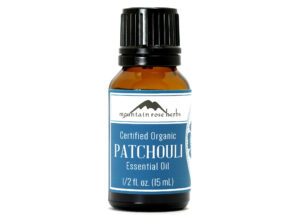Patchouli Essential Oil
With a rich history of being the scent of the era of free love and hippies, patchouli essential oil is a part of the mint family and is known for it’s robust, earthy, and distinct scent. The history of patchouli reaches further back in time with the silk trading industry. When the precious fabric was packed into boxes and containers, traders would pack patchouli leaves between the sheets of fabric to ward off moths and other insects. Over time, the scent of patchouli began to associated with the affluent fabric therefore being a scent of high standards.
While patchouli has a rather regal history, it also has real world benefits that can enhance your daily life.
Patchouli as a natural insect repellant
Patchouli, among several other essential oils, is a natural bug and mosquito repellant. The appealing scent makes it a great essential oil to put in natural bug repellents. It smells lovely while also being a naturally effective way to keep the bugs from eating you alive in the warm months.
Patchouli for beautiful skin
A major part of having beautiful skin is it’s ability to repair itself after damage. When applied to the skin, patchouli oil helps the body regenerate soft tissue as well as healing wounds that will not leave heinous scars behind. Body lotions, creams, and washes infused with patchouli essential oil can help regenerate skin cells on a continuous basis to ensure glowing, healthy skin around the clock.
Patchouli as an antiseptic
There are endless skin issues that everyone deals with on a daily basis, From dry, chapped skin to acne and dandruff on the scalp, the antiseptic characteristics of patchouli can help heal those issues. This makes patchouli infused products great for the body and hair. The healing properties can cure your athlete’s foot as well as restore your scalp’s health.
Patchouli for it’s scent
The smell of patchouli is distinct, well-known, and noticeable. The deep robust earthiness is balanced with a hint of mint and freshness that is like can add the perfect scent profile to any bath, body, or hair product.
Patchouli essential oil is known for it’s scent and it’s loyal free love following. While it’s Woodstock roots can not be denied, patchouli essential oil goes far beyond a 1960’s scent. It can heal your skin, cleanse your hair and scalp, and keep the bugs away. After it has accomplished all of that, patchouli essential oil also just smells great!
Buy Organic Patchouli Essential Oil
Organic patchouli essential oil is steam distilled from the leaves of Pogostemon cablin. This base note has a smoky and earthy aroma that is often found in deodorants, skin care, and aromatherapy products. It is considered to improve with age, and you can find many different colors and aroma profiles on the market. If you do not like the aroma of a certain distillation now, you may love it later. Patchouli oil blends well with sandalwood, jasmine, cedarwood, or lavender.
Blends Well With
Bergamot, black pepper, cedarwood, chamomile, cinnamon, clary sage, clove, coriander, frankincense, geranium, ginger, grapefruit, jasmine, lavender, lemongrass, litsea cubeba, mandarin, myrrh, neroli, oakmoss, opopanax, orange, rose, sandalwood, and vetiver
Packaging
Our 1/2 oz. and 1 oz. essential oils are packaged in amber glass bottles with drop reducers for easy application. Larger sizes are packaged in amber screw cap bottles and do not come with reducers or droppers.
Precautions
This oil may interact with certain drugs and may inhibit blood clotting. Never use essential oils undiluted, in eyes or mucus membranes. Do not take internally unless working with a qualified and expert practitioner. Keep away from children.
Before using topically, perform a small patch test on your inner forearm or back by applying a small quantity of diluted essential oil and apply a bandage. Wash the area if you experience any irritation. If no irritation occurs after 48 hours it is safe to use on your skin.


